Antique 19th C. French Gynecological Irrigator Dr. Eguisier's Vaginal Irrigator
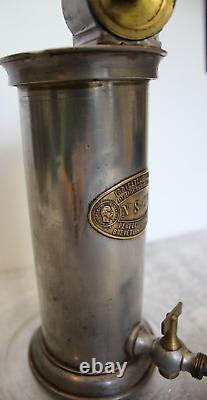
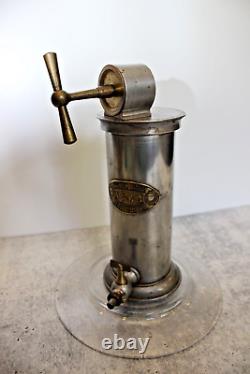
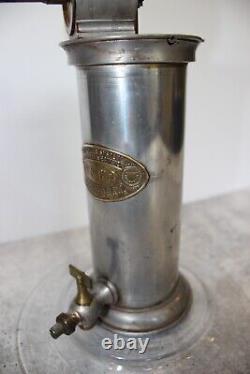
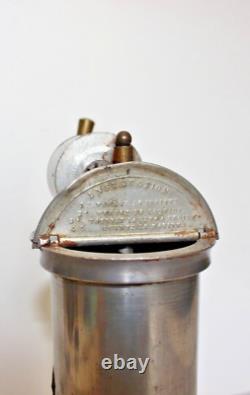
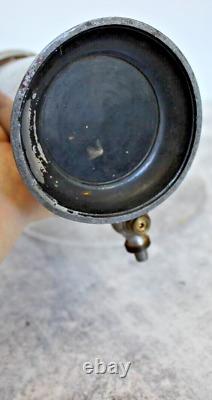
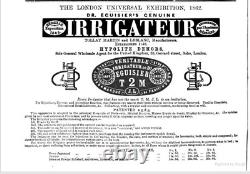

Antique French medical instrument, Dr. Eguisier's gynecological Irrigator No. 2 size, Napoleon III Gold Medal Award.
Used for feminine hygiene, douching, contraception, inducing labor and administering. From a family collection, well kept on display for decades. PLEASE LOOK AT PICTURES FOR CONDITION.Advertisement in last picture is from 1873 Catalogue of Surgical Instruments - Matthews Brothers of London. Invented by Maurice Eguisier (1813 - 1851) who obtained his PHD in 1837 with a thesis on female diseases. He became a celebrated gynecologist & obstetrician, discovering pregnancy detection via urine analysis in 1842.
His invention, first intended to cure gynecological maladies, was patented in 1843, and won international awards in 1849 and 1867. The label shows a profile of "Napoleon III Emporer" with the words "gold medal". Across the bottom reads Perfectionnment, Brevete SDGD Paris.
SDGD means the type of patent given by the government. Eguisier's partner in developing the irrigateur was Jean Leroy, a urologist, surgeon and inventor. By 1850, it was all the rage among the ladies of the French high society. The " irrigateurs" were originally manufactured in Paris and made in Brass coated Pewter & Copper versions.
Other manufacturers included Tollay Martin T. I wasn't able to figure out who these were. 1870, production had ceased, but women continued to use the irrigateurs into the early 1900s. 1 size is more rare than the No 2 size. 1 size holds 375ml of liquid.
It is a metal cylinder in which a piston moves. At the top of the irrigateur is a winding key to operate it. A tap is attached to the base of the device, to which a tube with an extended cannula was fitted. The directions are engraved under the lid in French: Close the tap, pour the liquid, turn the key to the right, open the tap.
The lid on this item is securely attached to the lid. The winding handle works, as does the tap at the bottom. The tap on the bottom looks to be soldered onto the cylinder.

